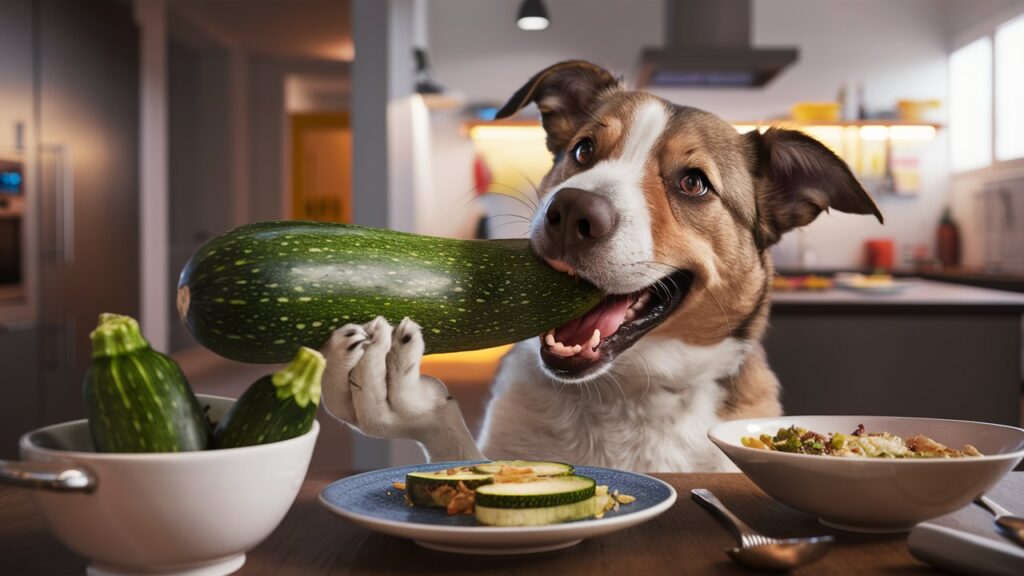
Can Dogs Eat Zucchini?
Yes, dogs can eat zucchini. It’s a healthy, low-calorie treat that offers nutritional benefits, such as fiber, vitamins, and minerals. Zucchini is gentle on the digestive system and can help manage weight and promote healthy digestion when fed in moderation.
To serve zucchini to your dog, you can offer it raw, cooked, or even frozen. Ensure it’s cut into small, manageable pieces, and avoid adding any seasonings or fats. Introduce it gradually into your dog’s diet to monitor for any digestive issues.
What is Zucchini?
Zucchini, also known as courgette, is a type of summer squash that is low in calories and packed with nutrients. It’s a popular vegetable in many households and is often used in salads, stir-fries, and even baked goods. But while it’s a healthy option for us, what about our dogs?
Benefits of Feeding Zucchini to Dogs
Zucchini is more than just a crunchy, low-calorie treat for dogs; it offers a range of health benefits that can contribute to your dog’s overall well-being. Here are some of the key advantages of including zucchini in your dog’s diet:
1. Low in Calories
Zucchini is naturally low in calories, making it an ideal snack for dogs who need to maintain or lose weight. It provides a satisfying treat without adding extra calories that could lead to weight gain. This makes zucchini a great option for dogs on a diet or those prone to obesity.
2. High in Fiber
Fiber is essential for healthy digestion, and zucchini is packed with it. The fiber in zucchini helps regulate your dog’s digestive system, promoting regular bowel movements and preventing constipation. It can also help manage diarrhea by adding bulk to the stool.
3. Rich in Vitamins and Minerals
Zucchini is loaded with essential vitamins and minerals that contribute to your dog’s health. It’s a good source of vitamin C, which boosts the immune system, and vitamin A, which supports eye health and skin. Additionally, zucchini contains potassium, which is vital for maintaining healthy muscles and heart function.
4. Hydrating
Zucchini is very effective especially during hot weather because it has a high water content. Feeding your dog zucchini is an easy way to increase their water intake, supporting kidney function and overall hydration.
5. Supports Weight Management
For dogs that need to lose weight or avoid gaining extra pounds, zucchini is a perfect snack. Its low-calorie content and high fiber make your dog feel full and satisfied without the risk of overeating.
6. Antioxidant Properties
Zucchini contains antioxidants, which help fight off free radicals in your dog’s body. These free radicals can cause cellular damage, leading to chronic diseases like cancer. By including antioxidant-rich foods like zucchini in your dog’s diet, you can help protect them from these potential health issues.
7. Gentle on the Stomach
Zucchini is gentle on your dog’s digestive system, making it suitable for dogs with sensitive stomachs. It’s easy to digest and unlikely to cause any digestive upset when introduced gradually and in moderation.
8. Promotes Healthy Skin and Coat
The vitamins and antioxidants in zucchini contribute to healthy skin and a shiny coat. Vitamin A, in particular, plays a crucial role in maintaining healthy skin, while the hydrating properties of zucchini help keep your dog’s skin moisturized.
9. Enhances Immunity
The vitamin C found in zucchini helps boost your dog’s immune system, making them more resistant to infections and diseases.
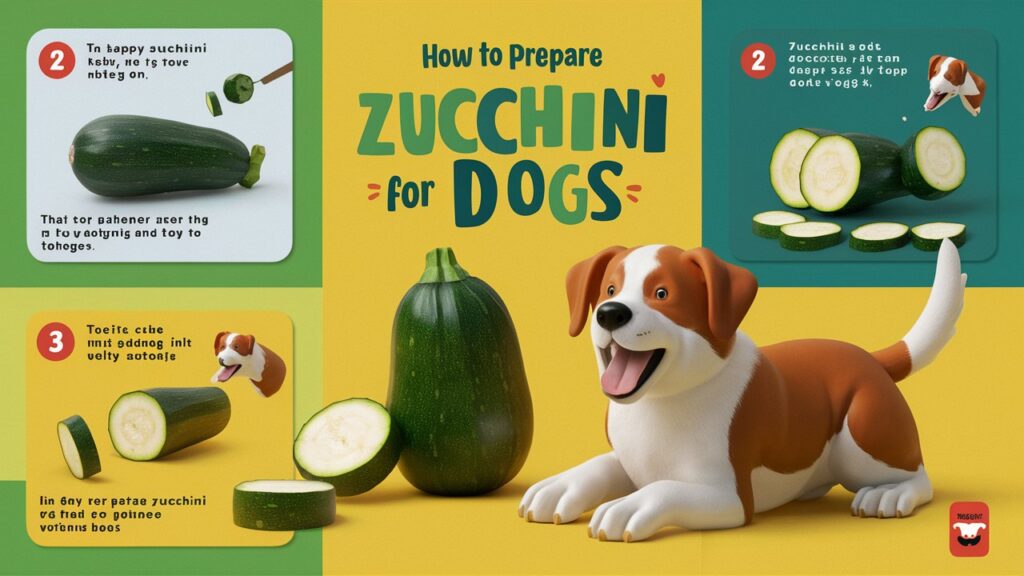
How to Prepare Zucchini for Dogs
Raw Zucchini: Is it Safe?
Yes, dogs can eat raw zucchini, but make sure to chop it into small, bite-sized pieces to avoid choking hazards. Raw zucchini retains all its nutrients, making it a nutritious option.
Cooked Zucchini: Best Methods
Cooked zucchini is also a great option, and some dogs might prefer it. Steaming or boiling is the best method to retain the most nutrients. Avoid frying or cooking with oils, as these add unnecessary calories and fats.
Avoiding Seasonings and Additives
When preparing zucchini for your dog, skip the seasonings, oils, and additives. While garlic, onions, and certain spices might make zucchini tastier for humans, they are toxic to dogs.
How Often Should You Feed Zucchini to Your Dog?
Feeding your dog zucchini can be a healthy and nutritious addition to their diet, but it’s important to do so in moderation. Here’s a guide on how often you should give zucchini to your dog:
1. Start Slowly
If you’re introducing zucchini to your dog’s diet for the first time, it’s best to start slowly. Begin with small amounts, such as a few bite-sized pieces, to see how your dog reacts. Monitor them for any signs of digestive upset, such as diarrhea or vomiting.
2. Frequency of Feeding
Zucchini can be fed to your dog a few times a week as an occasional treat or supplement to their regular diet. You don’t need to offer it every day, but including it in their diet two to three times a week can provide them with its nutritional benefits without overwhelming their digestive system.
3. Consider Your Dog’s Size and Weight
The amount of zucchini you feed your dog should be based on their size and weight. For small dogs, a few small pieces once or twice a week might be sufficient. Larger dogs can handle slightly more, but it’s still important not to overfeed. A good rule of thumb is that zucchini should make up no more than 10% of your dog’s daily food intake.
4. Use Zucchini as a Treat or Supplement
Zucchini is best used as a treat or a supplement to your dog’s main diet. It shouldn’t replace their regular meals or be the primary source of nutrition. Instead, think of zucchini as a healthy, low-calorie snack that adds variety to their diet.
5. Monitor Your Dog’s Response
Every dog is different, so it’s important to pay attention to how your dog responds to zucchini. If you notice any signs of digestive discomfort or if your dog seems to dislike it, reduce the frequency or stop feeding it altogether. On the other hand, if your dog enjoys zucchini and handles it well, you can continue offering it as part of their weekly diet.
How Zucchini Fits into a Dog’s Diet
Zucchini is a versatile and healthy addition to a dog’s diet, offering numerous benefits without the risks associated with some other human foods. Here’s how zucchini can be incorporated into your dog’s meals and snacks:
As a Low-Calorie Snack
Zucchini is low in calories, making it an excellent treat for dogs who need to watch their weight. It provides a satisfying crunch without adding unnecessary calories, which can help manage your dog’s weight effectively.
Mixed with Regular Dog Food
You can easily mix small, chopped pieces of zucchini into your dog’s regular food. This adds variety and additional nutrients to their meal, helping to ensure a balanced diet. Whether raw or lightly cooked, zucchini can enhance the texture and flavor of your dog’s food.
As a Training Reward
Small, bite-sized pieces of zucchini make great training rewards. They’re healthy, easy to digest, and can be used as a low-calorie alternative to commercial treats. Your dog will appreciate the taste, and you’ll appreciate the nutritional benefits.
In Homemade Dog Food Recipes
If you prepare homemade dog food, zucchini can be a great addition. It blends well with other dog-friendly vegetables and proteins, providing a balanced and nutritious meal. Just make sure to follow a recipe that meets all of your dog’s dietary needs.
In Frozen Dog Treats
During hot weather, you can use zucchini in homemade frozen treats. Blend zucchini with a little bit of plain yogurt or dog-safe peanut butter, pour the mixture into ice cube trays, and freeze. These treats are refreshing and packed with nutrients.
As a Topper for Kibble
If your dog is a picky eater, adding some cooked zucchini on top of their kibble might encourage them to eat more. The added moisture and flavor can make dry kibble more appealing, helping to ensure your dog gets all the nutrients they need.
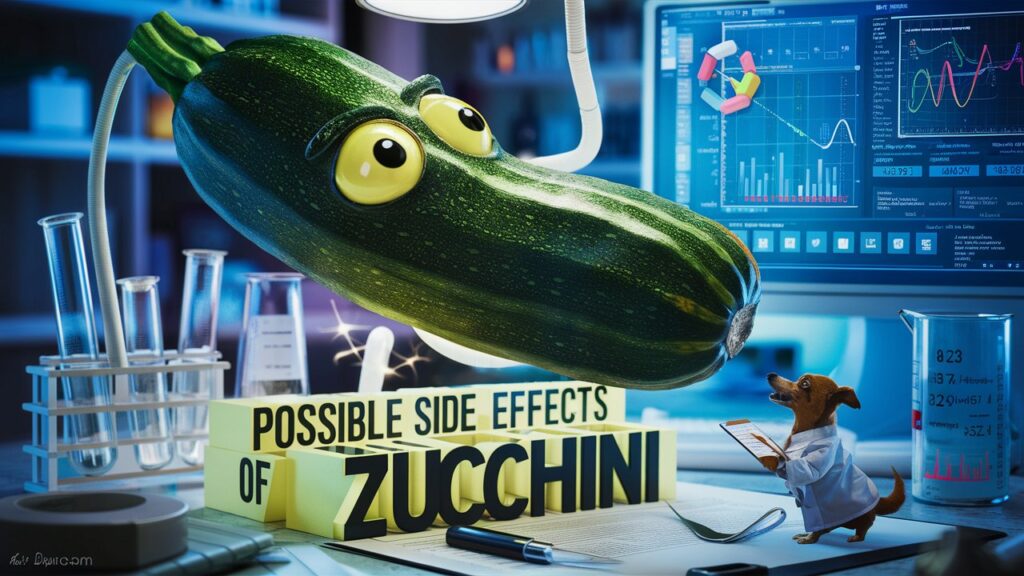
Possible Side Effects of Zucchini
Allergic Reactions
While rare, some dogs might be allergic to zucchini. If you notice any signs of an allergic reaction, such as itching, swelling, or difficulty breathing, discontinue feeding zucchini and consult your vet.
Gastrointestinal Issues
If zucchini is introduced too quickly or in large quantities, it might cause gastrointestinal issues like diarrhea or stomach upset.
Signs Your Dog Likes or Dislikes Zucchini: Can Dogs Eat Zucchini
Behavioral Indicators
Your dog will let you know if they like or dislike zucchini through their behavior. If they eagerly eat it and look for more, it’s a hit! If they turn their nose up or leave it untouched, it might not be their favorite.
Adjusting the Diet Accordingly
If your dog doesn’t seem to enjoy zucchini, don’t force it. There are plenty of other healthy snacks available, so you can find something they’ll love.
Alternative Options to Zucchini for Dogs: Vegetarian and Non-Vegetarian Choices
Here’s a table outlining alternative vegetables and non-vegetarian options that can be fed to dogs in place of zucchini:
| Category | Vegetarian Alternatives | Non-Vegetarian Alternatives |
|---|---|---|
| Low-Calorie Snack | – Cucumbers: Low in calories and hydrating. | – Chicken Breast: Lean protein, low fat. |
| – Carrots: Crunchy and rich in beta-carotene. | – Turkey: Lean meat, easy to digest. | |
| – Green Beans: Rich fiber and Low calories. | – Fish (Salmon): Omega-3 fatty acids. | |
| – Bell Peppers: Rich in Vit A and C | – Egg Whites: High protein, low fat. | |
| Rich in Fiber | – Sweet Potatoes: High in fiber and vitamins. | – Oatmeal: High in fiber, can be mixed with protein. |
| – Pumpkin: Supports digestion and regularity. | – Plain Cooked Quinoa: Protein-rich grain. | |
| – Spinach: Rich in iron and fiber. | – Lean Ground Beef: High in protein. | |
| – Broccoli: Fiber-rich and low in calories. | – Chicken Liver: Rich in Vit and Minerals. | |
| Vitamins & Minerals | – Kale: High in vitamins A, C, and K. | – Liver (Beef/Chicken): Packed with nutrients. |
| – Peas: Good source of vitamins and minerals. | – Cottage Cheese: Rich in calcium and protein. | |
| – Brussels Sprouts: High in vitamins and fiber. | – Sardines: Rich in Omega-3 and calcium. | |
| – Asparagus: High in vitamins A, C, and K. | – Yogurt (Plain, Unsweetened): Good source of probiotics and calcium. |
Conclusion: Can Dogs Eat Zucchini
Can Dogs Eat Zucchini? Zucchini is a safe, nutritious, and low-calorie snack for dogs that can offer several health benefits when fed in moderation. Whether raw or cooked, it can be a great addition to your dog’s diet as long as you prepare it correctly and introduce it gradually. As with any new food, always observe your dog’s reaction and consult your vet if you have any concerns.
FAQs: Can Dogs Eat Zucchini
- Can dogs eat zucchini with skin?
Yes, dogs can eat zucchini with the skin on, but it should be washed thoroughly to remove any pesticides or dirt. - Can dogs eat zucchini raw?
Yes, dogs can eat raw zucchini. It’s a healthy and crunchy snack, but make sure to cut it into small, bite-sized pieces. - How much zucchini can I give my dog?
You can give your dog a few small pieces of zucchini a couple of times a week. It should make up no more than 10% of their daily food intake. - How to prepare zucchini for a dog?
Zucchini can be served raw, steamed, or boiled. Cut it into small pieces, and avoid adding any seasonings, oils, or fats.

Jahanzaib Kaleem is a passionate and knowledgeable pet writer and veterinarian dedicated to enhancing the well-being of pets and educating pet owners around the world. With years of experience in veterinary medicine and a deep love for animals, Jahanzaib combines his medical expertise with a flair for writing to deliver insightful and practical advice on pet care.

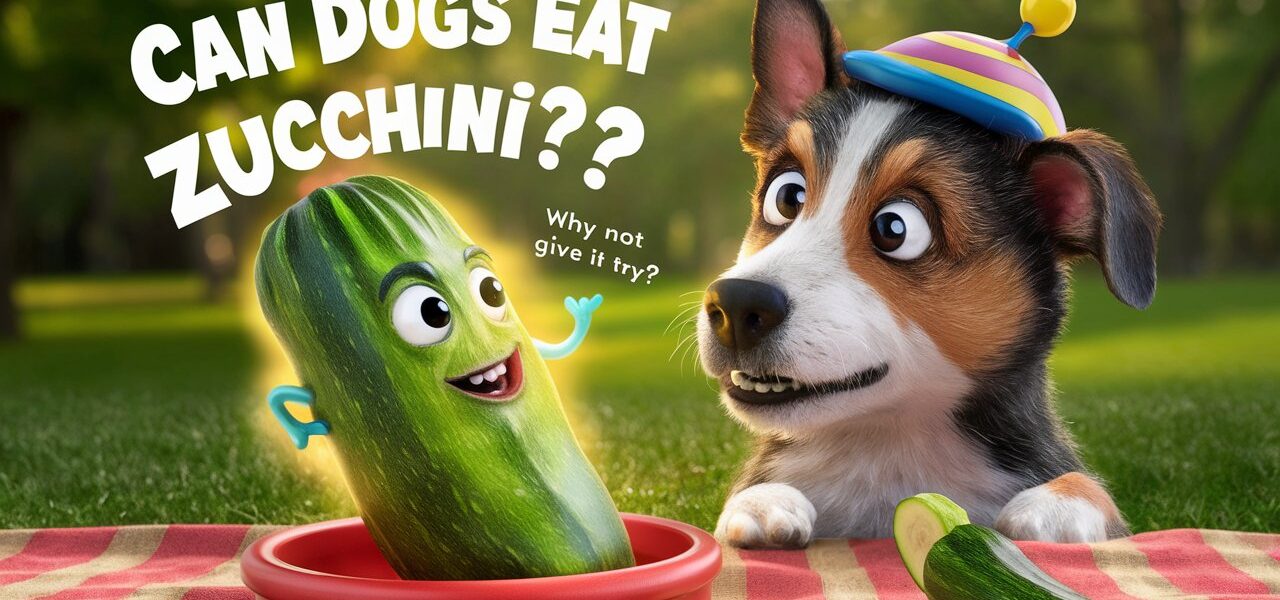

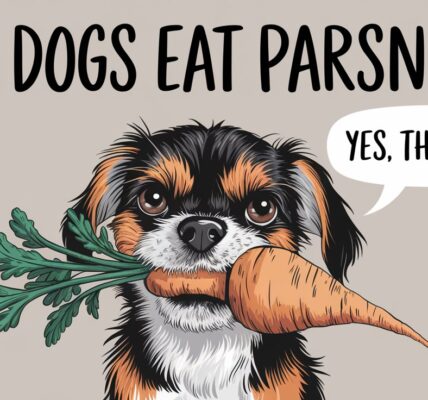


1 COMMENTS